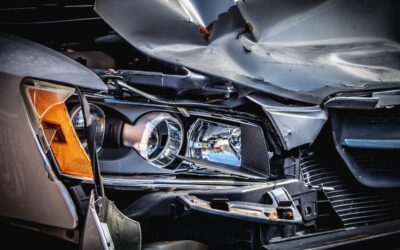Collision insurance is an integral protection that protects your vehicle in certain situations, such as a crash involving a stationary object or another vehicle. Having collision insurance can save you huge; if you get into a crash, your insurance company will send you reimbursement for the cost of repairs, minus the policy deductible and up until the limits as detailed on your policy documents. Collision insurance is great, added protection that is not mandatory in Ontario, but a common purchase for many. However, as it is an add-on, you’ll pay more for your car insurance policy than you would if you didn’t have this policy.
If your car is leased or financed, odds are that your lender or the car dealership will have required you to purchase collision coverage. They may also have mandated a certain level of comprehensive coverage, too. There are some circumstances, however, where collision coverage is no longer necessary, like where your premium is more than the actual cash value of your car or if your loan has been fully paid off.
This article goes over some questions pertaining to collision coverage, and the circumstances in which you might consider dropping it.
.
Should I Drop My Collision Insurance? – Frequently Asked Questions
At what point is collision insurance not worth it?
Everyone’s looking for the best way to save on their insurance. Reducing car insurance can be done in any number of ways, depending on your situation and your insurer. Increasing your deductible, asking about discounts for being part of a certain university, group, or being a long-time customer, driving less, etc. Another popular way to save on your insurance is to drop coverage and go bare minimum, still abiding by provincial regulations by trimming the “fat” so as to stay within what is mandated of you.
It’s risky, but it could be worth it. And what about optional coverages, like comprehensive and collision? Collision coverage costs extra, so at what point is it not worth it? Should you drop collision insurance?
Depending on your situation, having collision insurance may not be worth what it was when you first purchased it. If you purchased collision when you were still making car payments or when you initially bought your car, that car might not be worth the same amount of money 5-10 years later and that collision insurance might not make sense anymore.
You should not drop collision insurance if:
● You aren’t in a financial position where you can afford a new car. Collision insurance may only cost about an extra $30 or $40 a month, so if you’re unable to restart making car payments of $300 to $400 a month, it’s better to keep collision. That being said, if your car is getting older, you should start saving.
● If you’re not a lucky driver or have a poor driving record, you’ll be at higher risk by dropping collision coverage. Yes, history doesn’t always predict the present, but it can be a good indicator of potential issues. If you get into an accident and have collision insurance, you’ll be guaranteed a smooth claims process and not risk having to pay for repairs out-of-pocket.
● If you aren’t willing to assume the risk and would rather pay a little more for collision coverage, keeping your insurance can offer peace of mind.
● Finally, if you’re leasing or financing, you may not have the option to drop either collision or comprehensive, and will probably be required to carry both until your lease is complete or your car has been paid off.
Collision insurance may no longer be worth the price if you have enough money to afford a new car or at least finance one and your car is getting on in years, and is probably worth less than what it would cost to repair.
Why do some people drop collision and comprehensive coverage?
Sometimes people won’t just drop collision coverage, but they’ll drop both comprehensive and collision. This leaves them exposed to both physical damages from collisions with other vehicles and objects as well as damages resulting from non-collision events, like hail, fire, and falling objects. If you drop these coverages, you are no longer relying on insurance to replace your vehicle if it is severely damaged in an at-fault accident or when the at-fault driver is unknown or unidentified. But, dropping these coverages can save the policyholder huge on their insurance premiums, which is often why many people choose to drop these coverages.
Of course, if you are still financing or leasing your car, dropping either of these options likely won’t be in the cards for you. People generally go by the 10% rule with collision coverage (where if the collision coverage costs more than 10% of the vehicle’s total value, it isn’t worth it) and consider dropping comprehensive when their car gets up there in years.
Dropping both of these coverages is obviously a risk, but if you have the funds to purchase a new vehicle, or at least afford monthly payments, it might be an option to keep the insurance for your older vehicle affordable. Before you make the decision to drop these vital coverages, however, you may want to consider consulting with a broker.
Is collision worth it on an older car?
You oftentimes purchase collision coverage with newer cars, either upon purchase or when you lease/finance them at your local dealership. Sometimes, your dealership will require you to acquire collision coverage, per the agreement of your lease.
But what about older vehicles? Older cars are likelier to be written off in accidents due to their total value due to depreciation over the years. Plus, older cars are likely already paid off, and since there’s no more payments, the car is totally yours and you aren’t under any obligation to purchase collision coverage. Well, there’s way to make your decision all the easier.
If purchasing collision coverage for your older car is 10% or more of the value of your vehicle, then you should skip its purchase. Cancelling it will save you money on your insurance. Alternatively, you can also consult with a broker for their opinion on the matter.
Can you keep comprehensive insurance and drop collision insurance?
Yes. In fact, there are special circumstances in which you might consider purchasing comprehensive coverage or maintaining comprehensive coverage but dropping collision in order to maintain a continuous insurance history without having to pay an arm and a leg.
For example, say you had a sports car – a convertible – that you only used in the summer. An expensive car like that would probably be quite a lot to insure, but it’s only usable in the months of the year where there isn’t snow. In Ontario, those months are far and few between. You might consider instead dropping collision insurance and any insurance option that is necessary for your vehicle to be road-legal, but continuing its comprehensive coverage to keep it insured while also protecting your vehicle from harsh elements, thieves and vandals, and more.
This helps you save on your insurance, you can keep your car insured (to some degree), and you can avoid any lapses in coverage which may make insurance more difficult to acquire in the future and more expensive.
How long should you keep collision coverage on a car?
To ensure the best savings and the best coverage possible, your best course of action is to carefully weigh your options when it comes to maintaining your collision coverage and make a list of benefits and drawbacks to determine at what point you should drop your collision coverage. For one, if your car is already not worth a whole lot, dropping collision coverage might be a good idea. Consider how much your vehicle would cost to repair and how accessible its parts are before you make a decision.
You will also need to think about your own driving skills. If you’re a particularly good driver with a low chance of getting into an accident, you’re better off making a claim on the other driver’s insurance, if they were the ones at-fault.
Cars lose value with each year. At some point, the car that might have greatly benefited from having collision coverage may be worth less than what it costs to insure. Check the price of your current premium and compare it to the current market value of your car. If your car’s annual premium is more than 10% of your car’s current value, you should consider dropping your collision coverage.






